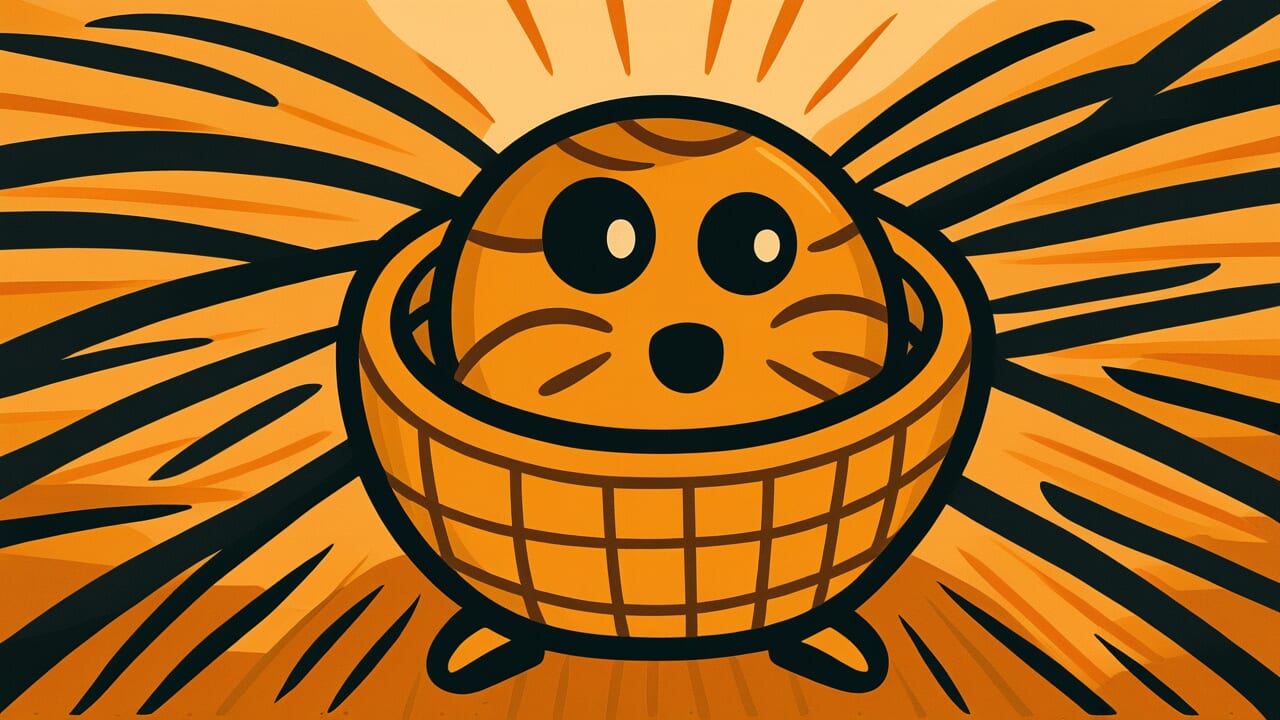How to Read “Regret of the reed nest”
Yoshizu no kui
Meaning of “Regret of the reed nest”
“Regret of the reed nest” is a proverb that means regretting your own choices or actions later on. It especially expresses the regret you feel when something you decided by yourself doesn’t turn out well.
This proverb is used when a decision you made on your own, not forced by anyone, backfires. The regret feels deeper because you can’t blame others. It’s a failure that’s entirely your responsibility.
Even today, life is full of decisions you must make yourself. Career paths, job changes, relationships – these all require personal choices.
Sometimes the path that seemed best at the time makes you think “if only I had chosen differently” when you look back. “Regret of the reed nest” captures this kind of self-inflicted regret in simple terms.
Origin and Etymology
The origin of “Regret of the reed nest” has no clear historical record. However, we can make interesting observations from the words themselves.
“Reed nest” refers to a nest made from reeds. Reeds are tall plants that grow near water and have been deeply connected to Japanese life since ancient times.
Their stems are light yet strong, so people used them to make blinds and roofing materials.
Birds building nests with reed stems was a familiar sight to Japanese people throughout history. But reeds grow near water, so nests built there aren’t necessarily stable.
They’re easily exposed to changing water levels and storms. Sometimes the nests would wash away or fall apart.
This proverb likely expresses how a bird that built its nest in such an unstable place would later regret it. “Why did I build my nest here?” the bird might wonder.
The regret feels especially deep because the bird chose the location and built the nest itself.
Humans also act on their own judgment and sometimes regret the results. This saying overlaps human psychology with the image of a bird building a reed nest.
It shows the sharp observational skills of Japanese people.
Usage Examples
- That investment decision was complete regret of the reed nest – I should have researched more carefully
- I opened my own shop but business is tough, and I feel the regret of the reed nest every day
Universal Wisdom
The universal wisdom in “Regret of the reed nest” is about the destiny humans carry because we have free will. We have the freedom to choose, but we must also take responsibility for the results of those choices.
What’s interesting is that this proverb doesn’t just say “regret.” It specifically says “regretting the nest you built.” For a bird, the nest is a vital place that protects life.
That choice is literally life or death. For humans too, the life choices we make are acts of creating our own place in the world.
Why do people feel regret? Because we can’t see the future when we make choices. Even when we believe we’re making the best decision at the time, circumstances change.
Later we might realize a different choice would have been better. But we can’t turn back time.
This proverb has been passed down through generations because “choice and regret” is a universal human experience across all eras. Ancient people and modern people alike face the results of their own decisions.
Sometimes they live with regret. This is the price of human freedom, but it’s also an opportunity for growth.
When AI Hears This
Wetlands where reeds grow are called ecotones in ecology – environmental transition zones. They’re neither land nor fully aquatic.
In these boundary regions, organisms adapted to both environments gather. Biodiversity jumps to two or three times normal levels. This is called the edge effect.
But here’s what’s interesting: this richness comes with a cost. Ecotones are extremely vulnerable to environmental changes.
If the water level changes by just a few centimeters, neither land organisms nor aquatic ones can survive. So where reeds grow is both the richest and most unstable place.
Human in-between positions have the same structure. For example, someone at the boundary of two specialties can combine both fields to do creative work.
But when the environment changes, they risk being seen as mediocre in both specialties.
Regret of the reed nest shows the essential dilemma of boundary regions. There is genuine richness there. But stability is sacrificed.
What natural ecotones teach us is that being in-between isn’t just indecisiveness. It’s a structural characteristic where high returns and high risks coexist.
Lessons for Today
“Regret of the reed nest” teaches you how to face regret. Making choices without any regret in life is impossible.
So rather than avoiding choices out of fear of regret, isn’t it better to use regret as fuel for growth?
Modern society is an age of too many choices. Career paths, jobs, where to live, relationships – countless options exist in every situation.
This makes us prone to thinking “maybe there was a better choice.” But we’ll never know how the roads we didn’t take would have turned out.
What matters is your actions after choosing. Even if your initial choice wasn’t perfect, you can improve the situation through effort and creativity.
Just as a bird that built a reed nest shouldn’t only regret, but can reinforce the nest or choose a better location next time, we too can learn from experience.
If you’re regretting a past choice right now, that time isn’t wasted. Your regret is proof that you’re seriously engaging with life.
And that experience will surely make your next choice wiser.



Comments